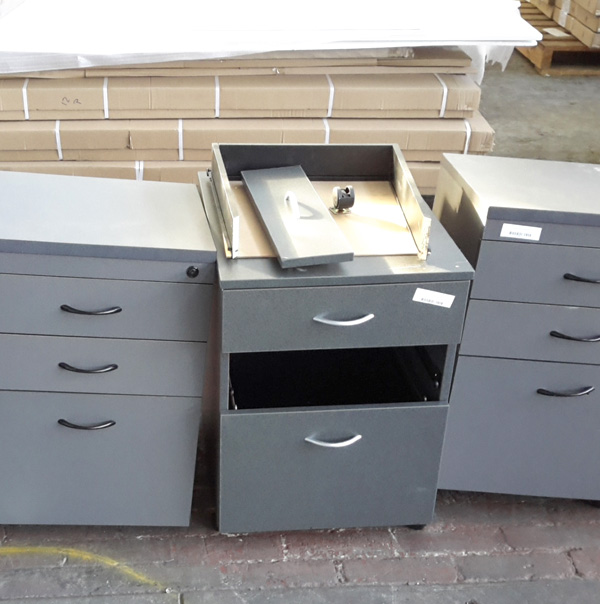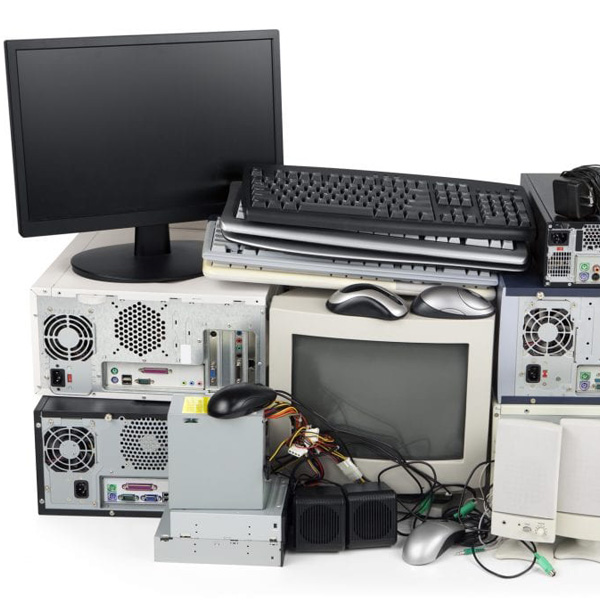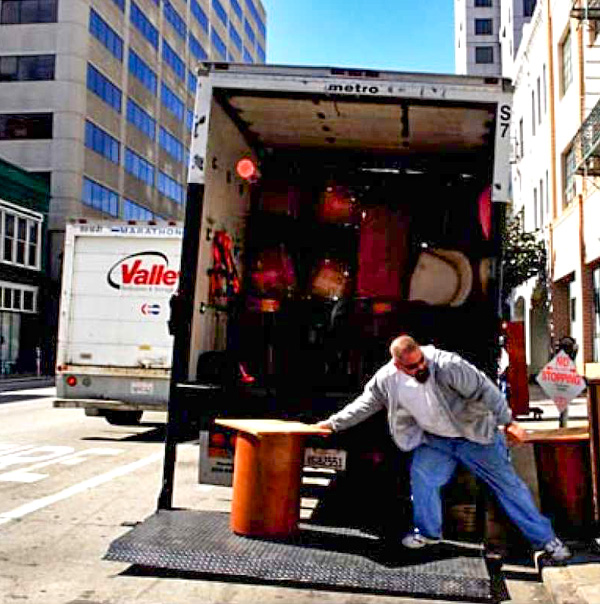In an era where environmental consciousness is not just a trend but a necessity, the concept of ‘green’ extends far beyond the mere reuse or recycling of paper and plastic. It delves into the intricate world of electronic waste (e-waste) management, an often-overlooked facet of environmental responsibility. This is where electronic disposal (e-disposal) services emerge as a crucial player. The focus of this blog is to unravel the significance of e-disposal services, particularly in the context of green commercial moves, and to explore how these services are pivotal in making commercial relocations not just efficient but environmentally responsible.
E-disposal services involve the process of discarding electronic products in an environmentally friendly manner. As the digital age has advanced, so has the proliferation of electronic gadgets and equipment, leading to a surge in e-waste. E-disposal is not just about getting rid of old electronics; it’s about doing so responsibly. These services ensure that electronic waste is handled in a way that minimizes its impact on the environment.
When businesses relocate, they often face the challenge of handling a large amount of e-waste, ranging from outdated computers and servers to miscellaneous electronic peripherals. This is where green commercial moves come into play, emphasizing the need for eco-friendly relocation practices. The role of e-disposal in these green moves is paramount. By ensuring that electronic waste is disposed of responsibly, businesses can significantly reduce their environmental footprint.
The objective of this blog is to delve deep into the role of e-disposal services in facilitating eco-friendly commercial moves. We aim to provide a comprehensive understanding of how e-disposal works, its environmental benefits, and the ways in which businesses can integrate these services into their relocation plans. The blog will also highlight best practices, innovative approaches in e-disposal, and how these practices align with broader sustainability goals.
The Growing Need for Green Commercial Moves
In today’s world, where climate change and environmental sustainability are at the forefront of global concerns, businesses are increasingly recognizing the importance of integrating eco-friendly practices into all aspects of their operations. This commitment to sustainability becomes particularly significant during commercial moves. Let’s explore why green commercial moves are becoming a necessity, considering the rising environmental concerns, legal and ethical responsibilities, the impact of such moves on the environment, and the benefits they bring.
Rising Environmental Concerns in Business Operations
The modern consumer and stakeholders are more environmentally conscious than ever before, placing businesses under scrutiny regarding their ecological footprint. This scrutiny extends to all areas of business operations, including the process of relocating offices or facilities. The carbon footprint associated with moving, if not managed responsibly, can significantly add to a business’s overall environmental impact.
Legal and Ethical Responsibilities towards Eco-friendly Practices
Beyond the moral imperative, there are growing legal and regulatory frameworks that mandate environmentally responsible practices in business operations, including commercial moves. Many regions have stringent laws regarding waste management, carbon emissions, and recycling non-compliance, which can result in substantial penalties. Ethically, businesses have a responsibility towards their stakeholders – including employees, customers, and the community at large – to operate in a manner that minimizes environmental harm.
The Impact of Commercial Moves on the Environment
The environmental impact of commercial moves is multifaceted. Firstly, there’s the issue of e-waste generated from outdated or unwanted electronic equipment. If not disposed of correctly, this can lead to harmful chemicals seeping into the environment. Secondly, the carbon emissions from the transportation of goods can be significant, especially for long-distance relocations.
Benefits of Adopting Green Strategies in Business Relocation
Adopting green strategies in business relocation is not only beneficial for the environment but also offers several advantages for the company. Firstly, it can lead to cost savings in the long run, as sustainable practices often involve more efficient use of resources and reduced waste. Secondly, it enhances the company’s image and reputation, strengthening customer and stakeholder trust. Businesses that are seen as environmentally responsible can enjoy increased loyalty and support from eco-conscious consumers.
Understanding E-disposal Services

Electronic disposal, commonly known as e-disposal, has become an indispensable component of responsible waste management, particularly in the context of commercial moves. This section will provide a comprehensive insight into the intricacies of e-disposal services, covering the definition and scope, types of electronic waste encountered during commercial moves, the ethical and safe disposal process, and the crucial aspect of legal compliance and certifications.
Definition and Scope of E-disposal Services
E-disposal services encompass the responsible and environmentally conscious handling of electronic waste. The scope of these services goes beyond mere disposal and extends to the secure destruction of data, recycling of components, and, whenever possible, the repurposing of electronic devices. This involves a systematic approach to managing electronic waste, ensuring that hazardous materials are handled with care and that the environmental impact is minimized. E-disposal services cater to a wide range of electronic devices, from computers and servers to peripherals like printers and scanners.
Types of Electronic Waste Handled in Commercial Moves
During commercial moves, businesses often encounter a diverse array of electronic waste. This includes outdated computers, servers, networking equipment, printers, copiers, and various other electronic peripherals. Each category of electronic waste requires specific handling techniques to ensure both data security and environmental responsibility. E-disposal services are equipped to handle this spectrum of electronic waste, distinguishing between items that can be refurbished, recycled, or require secure destruction to safeguard sensitive information.
The Process of Ethical and Safe E-disposal
Ethical and safe e-disposal involves a meticulous process to ensure that electronic waste is managed responsibly. The process typically begins with a thorough inventory and assessment of the electronic items to determine their disposition. Data security is a paramount concern, requiring secure data destruction methods such as data wiping or physical destruction of storage media. Following this, the e-disposal service proceeds with the environmentally friendly disposal or recycling of electronic components. Reusable materials are separated, and hazardous substances are handled with care to prevent environmental contamination. Ethical e-disposal practices also involve adhering to guidelines that prevent the export of electronic waste to countries with lax environmental regulations.
Planning a Move with E-disposal in Mind

When a business prepares for a commercial move, planning for the responsible disposal of electronic waste is crucial. This process involves not just the logistics of moving from one location to another but also ensuring that the environmental impact is minimized. This section will guide you through the essential steps of assessing electronic waste before the move, selecting the right e-disposal service provider, training employees in e-disposal practices, and setting up a systematic e-disposal plan for the move.
Assessing Electronic Waste Before the Move
The first step in planning an eco-friendly move is to conduct a thorough assessment of the electronic waste that will be generated during the process. This involves inventorying all electronic equipment, including computers, printers, scanners, and any other electronic devices used in the business. The assessment should categorize these items based on their condition – whether they are in working order, can be refurbished, or need to be disposed of. This categorization helps in determining the most appropriate e-disposal method for each item and aids in the estimation of the volume of e-waste, which is crucial for planning the disposal process.
Partnering with the Right E-disposal Service Provider
Choosing a reliable and efficient e-disposal service provider is a critical aspect of this process. Look for providers who are certified and comply with legal regulations related to e-waste management, such as those with ISO 14001 or e-Stewards certification. A good service provider will offer services such as secure data destruction, environmentally responsible disposal, and, if possible, recycling of electronic components. They should also have a transparent process and provide documentation for the disposal and recycling of e-waste, ensuring accountability and peace of mind.
Employee Training and Awareness on E-disposal Practices
Employee involvement is key to the success of any green initiative, and e-disposal is no exception. Training employees and raising their awareness about the importance of e-disposal can significantly enhance the efficiency of the process. Employees should be educated about the environmental impact of e-waste and instructed on how to segregate electronic waste properly. This training can also include information on data security measures to ensure sensitive information is appropriately handled before disposal.
Setting Up a Systematic E-disposal Plan for the Move
Developing a systematic e-disposal plan is essential for a smooth and eco-friendly relocation. This plan should outline the entire e-disposal process, from assessment to final disposal, and include specific roles and responsibilities for staff members. It should also detail the logistics of the e-disposal process, including collection points for e-waste, scheduling for waste pickup, and coordination with the e-disposal service provider. Furthermore, the plan should encompass the documentation and tracking of e-waste to ensure everything is disposed of in compliance with environmental regulations and corporate sustainability goals.
Challenges and Solutions in E-disposal during Commercial Moves

Navigating the landscape of e-disposal during commercial moves comes with its set of challenges, but innovative solutions and best practices can transform these hurdles into opportunities. In this section, we will explore the common challenges faced in e-disposal, present innovative solutions, delve into a real-world case study highlighting successful e-disposal strategies, and emphasize the importance of collaborations and partnerships for effective e-disposal.
Common Challenges Faced in E-disposal
Data Security Concerns: Safeguarding sensitive data during e-disposal is a paramount challenge. Businesses often face the dilemma of ensuring secure data destruction while also responsibly managing electronic waste.
Logistical Complexity: The logistics involved in coordinating the collection, transportation, and disposal of electronic waste during a commercial move can be intricate, requiring careful planning and execution.
Diverse Types of E-waste: Electronic waste comes in various forms, from computers and servers to peripherals, each requiring distinct disposal methods. Efficiently managing this diversity is a common challenge.
Regulatory Compliance: Keeping up with the ever-evolving landscape of e-waste regulations and ensuring compliance with local and international laws can be a complex task for businesses.
Innovative Solutions and Best Practices
Secure Data Destruction Protocols: Implementing secure data destruction protocols, such as advanced data wiping or physical destruction of storage media, addresses the data security challenge associated with e-disposal.
Centralized E-disposal Planning: Centralizing the planning and execution of e-disposal as part of the overall commercial move strategy helps streamline logistics and ensures a cohesive approach to waste management.
Comprehensive E-waste Sorting: Adopting a comprehensive sorting system for different types of electronic waste enables businesses to categorize items for refurbishment, recycling, or secure disposal, optimizing the overall e-disposal process.
Regular Training and Awareness Programs: Consistent training programs for employees on e-disposal practices foster awareness and adherence to proper procedures, reducing errors and improving the efficiency of the process.
The Future of E-disposal in Green Business Practices
Trends and Innovations in E-disposal Services
Advanced Data Security Measures: With the increasing importance of data protection, e-disposal services are incorporating advanced data security measures, including blockchain technology and encryption, to ensure the secure destruction of sensitive information.
Artificial Intelligence (AI) Integration: AI is being integrated into e-disposal processes to enhance efficiency. AI algorithms can optimize the sorting and categorization of electronic waste, identifying components suitable for recycling or repurposing.
Robotics for Dismantling: Robotics is being explored for dismantling electronic devices, making the process faster, more accurate, and safer. Automated dismantling reduces the risk of human exposure to hazardous materials present in electronic waste.
The Evolving Role of E-disposal in Sustainable Business Models
Extended Producer Responsibility (EPR): The concept of EPR is gaining prominence, shifting the responsibility for the entire lifecycle of electronic products to the producers. This encourages manufacturers to design products with easier recyclability and take responsibility for their disposal.
Incorporating E-disposal in Corporate Sustainability Strategies: E-disposal is becoming an integral part of corporate sustainability strategies. Companies are realizing that responsible e-disposal not only aligns with environmental goals but also enhances brand reputation and stakeholder trust.
Carbon Offsetting Through E-disposal: Businesses are exploring the concept of carbon offsetting through responsible e-disposal practices. By investing in projects that reduce carbon emissions, companies can offset the environmental impact of their electronic waste.
Experience Seamless Relocation with Valley Relocation!
Discover the expertise of Valley Relocation for your high-profile commercial relocation. From IT logistics to secure storage services, we’ve got your needs covered. Schedule a free site survey today to explore tailored solutions and ensure a smooth transition.
Contact us now to learn more about Valley Relocation’s comprehensive services.






